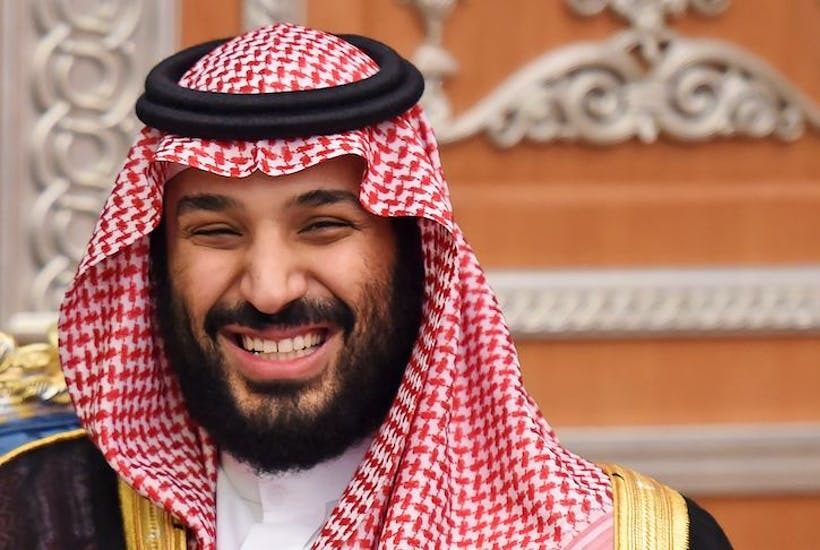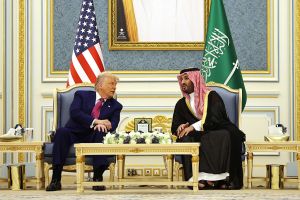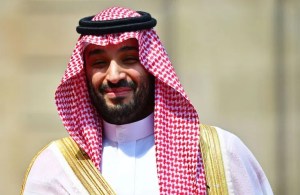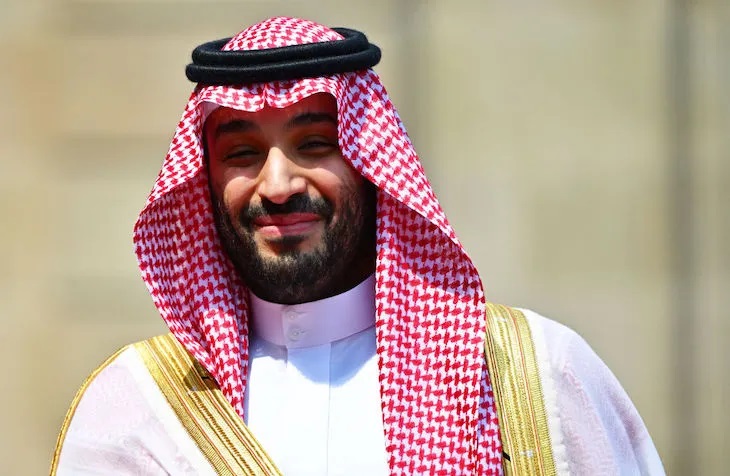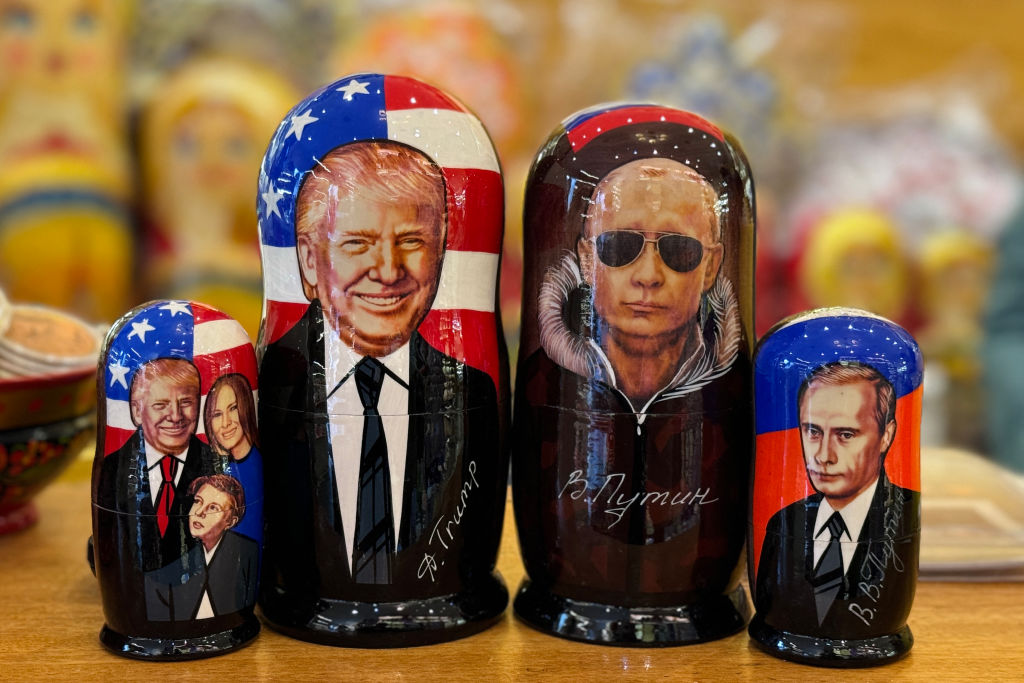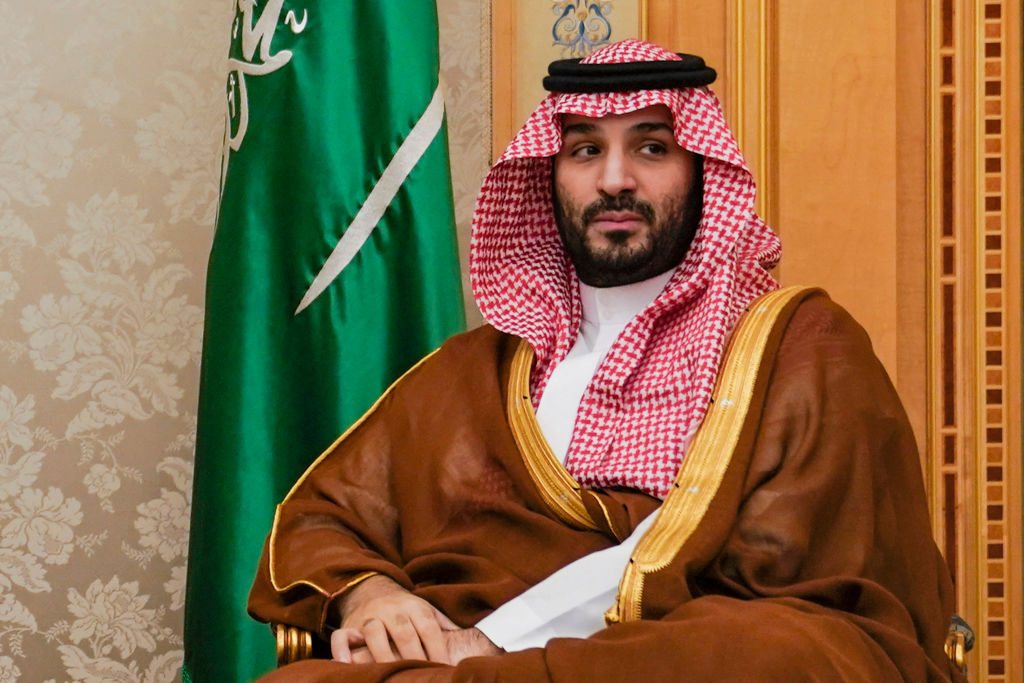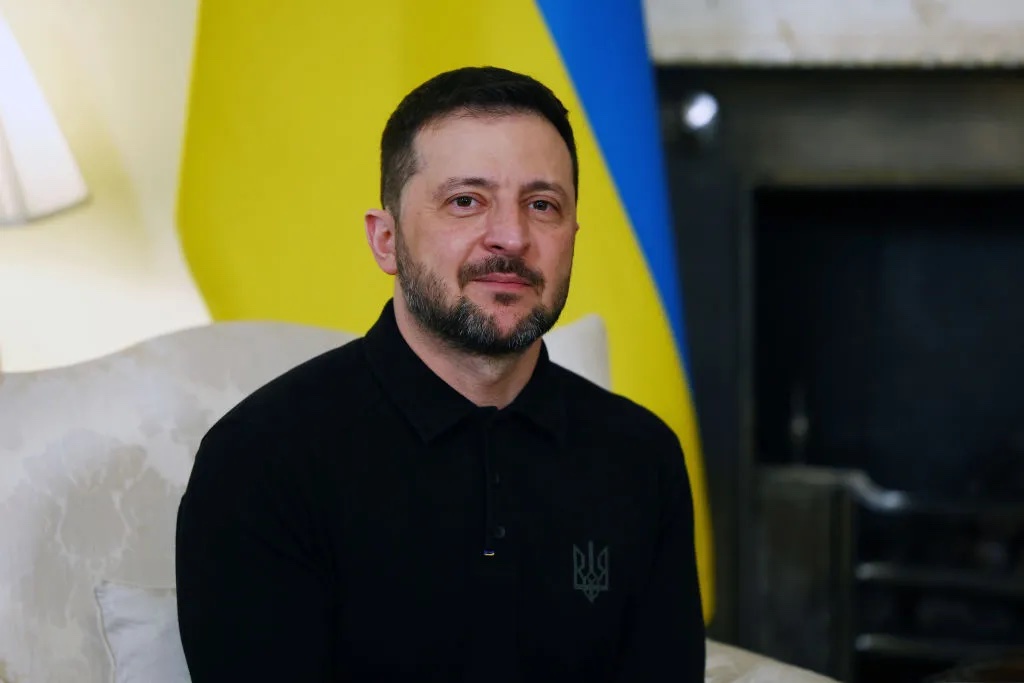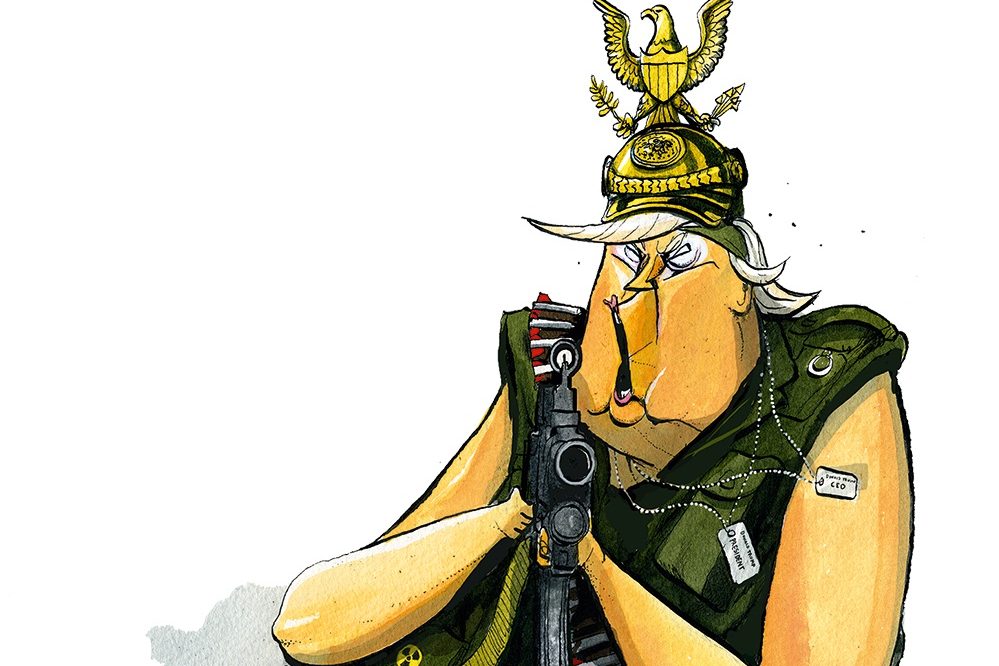Some people will believe anything, so other people will say anything, especially if they’re desperate. The headline news in Saudi crown prince Mohammed bin Salman’s chat with the Atlantic’s Jeffrey Goldberg is bin Salman’s statements that both Israelis and Palestinians “have the right to their own land”; that Saudi Arabia has “a lot of interests” in common with Israel; and that, pending an Israeli-Palestinian peace deal, Israelis and Gulf Arabs could do the Sword Dance after the misunderstandings of the last seventy years.
Such is the healing power of desperation. The Saudis have pretended for seven decades that the Zionist Entity does not exist, and that, if it does, it should not. Of course, bin Salman is motivated less by the desire for peace than the prospect of war. Iran is taking over the Arab states. Through their proxies, the mullahs in Tehran now either control or have a veto over the politics of Baghdad, Beirut, Gaza, Sanaa, and Damascus. That leaves Amman, Jerusalem, and Riyadh. The Israelis will defend themselves with their customary vigor. They’ll surely help out Jordan, Israel’s buffer against the collapse of the Sunni states and the spread of Iranian influence. But who’ll help Saudi Arabia, with its mosques, its oil wells, its pampered rulers, and its lavishly funded and demonstrably incompetent military?
America, that’s who. At least, this is what bin Salman clearly wants. Beneath the headlines, his speech was a pitch for American support. But how much of bin Salman’s talk about Saudi Arabia and its regional problems is true—and how much is fake news?
“Islam is a religion of peace. This is the translation of Islam.”
Not really. ‘Islam’ shares a root with ‘salaam’, but it means ‘submission’.
Saudi Arabia faces a ‘triangle of evil’, comprising the ‘extremist Shiite ideology’ of Iran, the caliphate-building Muslim Brotherhood, and its spin-offs, the ‘terrorists—al-Qaeda, Isis—that want to do everything with force’.
Not really. Saudi Arabia might be threatened on three fronts, but they aren’t united. Iran opposes the Muslim Brotherhood and the Sunni terrorists. And bin Salman has forgotten a fourth enemy of tolerance—the Saudi-sponsored Salafism that has blighted societies all over the globe. Call it the ‘quadrilateral of evil’. A pity, really, that someone’s already tried and failed to convince the American public with ‘axis of evil’.
“There is no Wahhabism.” Bin Salman claims never to have heard of Saudi Arabia’s state-sponsored version of Islamism. “We’re not familiar with it. We don’t know about it,” he quips. “No one can define this Wahhabism.”
Given that the Western press is describing bin Salman as a tech-friendly reformer, it may be time to show him Wikipedia.
“In our religion, there is no difference between men and women. There are duties to men and duties to women. There are different forms of equality.”
So no, women aren’t equal. Just very special. So very, very special that they can’t travel without the the permission of a male family member.
“If it were not for absolute monarchy, you wouldn’t have the United States. The absolute monarch in France helped the creation of the United States by giving it support…Absolute monarchy is not an enemy of the United States, it’s an ally for a very long time.”
An interesting question for connoisseurs of the eighteenth-century counterfactual, but also completely irrelevant. Bin Salman’s last line is daft. Has no one told him about the French Revolution?
“By the way, the queen of the United Kingdom, she has absolute power with any law.”
Only in her dreams, not absolutely since Magna Carta in 1215, and not much since 1688. Once more, it’s as if Prince Mohammed’s historical knowledge runs out in the Middle Ages.
“I believe that the Iranian supreme leader makes Hitler look good.”
Is bin Salman thinking about fashion—Hugo Boss versus the flowing robe? Or is he trying to win the support of American Jews who, as Saudi schools and Saudi-funded mosques have taught for decades, control the White House and Wall Street, and of course the weather too? The problem is that bin Salman is comparing what Hitler actually did with what Ali Khamenei might yet do. By that measure, Hitler makes Khamenei ‘look good’.
“The supreme leader is trying to conquer the world. He believes he owns the world.”
And we thought it was the Saudis who were trying to conquer the world by funding the construction of mosques and training belligerent preachers in the non-existent Wahhabist style.
“Our country doesn’t have a problem with Jews.”
Of course not. Saudi Arabia is also a haven for Christians. No visit is complete without touring its many synagogues and churches. Don’t forget to bring home a copy of the Protocols of the Elders of Zion for the family, and some of that charming Saudi folk art, in which hook-nosed rabbis drink the blood of Palestinian infants.
As Goldberg says, bin Salman ‘dodges questions he doesn’t like’. He does like the royal prerogative of being allowed to burble on, whether or not he knows what he’s talking about. Still, if Saudi Arabia is to be reformed from within, this is what a reformist Saudi king would sound like, platitudes, apologetics, false historical parallels and all. It could be worse, and with Obama’s deal with Iran on the rocks, it could very well get worse quite soon. For bin Salman got one thing right: the lamentable outcome of Obama’s Iran deal:
“Sixty per cent of the Iranian economy is controlled by the Revolutionary Guard. The economic benefits of the Iran nuclear deal are not going to the people. They took $150bn after the deal—can you please name on housing project they built with this money? One park? One industrial zone? Can you name for me one highway that they built?”
‘We have to go to a scenario where there is no war,’ bin Salman told Goldberg. Does ‘no war’ mean peace—or Iran’s submission? Judging from bin Salman’s appeals to the Americans, he calculates that he cannot achieve either without American help. But America abandoned its Middle East footing under Obama, and shows little inclination to return under Trump. Only this week, while bin Salman toured America’s nodes of political, tech and oil power, Trump said that American troops would be leaving Syria soon—and leaving Syria to Russia, Iran and Turkey. That said, a line in the sand has to be drawn somewhere, and the United States has always drawn one around Saudi Arabia. And, of course, no one knows what Donald Trump will do next.



